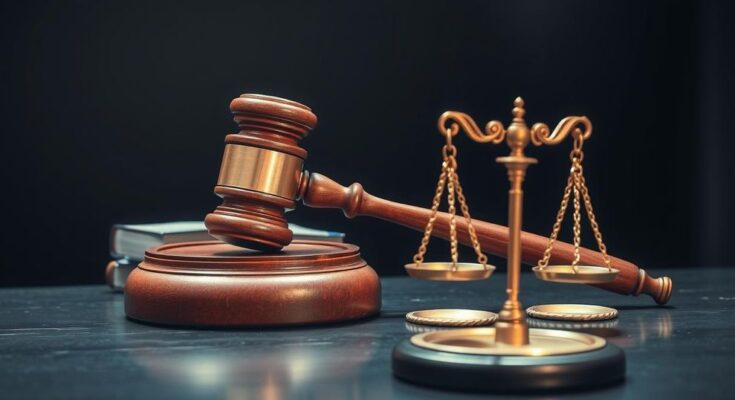A trial set to begin in Tunis will see prominent opposition figures, including politicians and activists, accused of plotting against state security. Critics describe the proceedings as politically motivated and unfair, raising concerns about the suppression of dissent in Tunisia. The ongoing legal actions have attracted attention from international human rights organizations, calling for an end to arbitrary detentions and a fair judicial process.
A contentious trial of prominent Tunisian opposition figures accused of conspiracy against state security is scheduled to begin on Tuesday. Critics and human rights organizations have condemned the legal proceedings as politically motivated and unfair. Approximately 40 notable defendants are involved, including prominent politicians, lawyers, and media figures, many of whom have been vocal opponents of President Kais Saied. Following their arrests in February 2023, the defendants face charges related to terrorism and plotting against the state.
Key figures among the accused include Jawhar Ben Mbarek, Abdelhamid Jelassi, and Issam Chebbi, all of whom are prominent critics of President Saied, who came to power in 2019 amid Tunisia’s democratic transition. However, since his power consolidation in 2021, there have been growing concerns regarding the erosion of civil liberties and rights in the country. Rights advocates characterize the ongoing arrests and prosecutions as indicative of a wider suppression of dissent in Tunisia.
The case additionally includes charges against activists and a former parliament member living abroad, highlighting the international dimension of the accusations. Ben Mbarek has called the trial an attempt at the “methodical elimination of critical voices” within Tunisian society. He criticizes the judicial process as an example of “judicial harassment,” accompanied by claims that the charges are based on unreliable evidence.
The defense committee for the detainees has denounced the decision to conduct the trial remotely, arguing it denies the defendants the right to a fair legal proceeding. Ahmed Nejib Chebbi, head of the National Salvation Front, emphasized that fair trials necessitate the appearance of defendants before judges. Observers have pointed out the lack of transparency within the case, citing it as further evidence of its unfairness.
Tensions are escalating in Tunisia, particularly in light of the February sentencing of Ennahdha leader Rached Ghannouchi to 22 years for separate charges of plotting against state security, signaling ongoing legal repression of dissent in the country. The UN has urged the Tunisian government to halt arbitrary arrests targeting journalists and political activists, which they deem detrimental to human rights. The Tunisian Foreign Ministry dismissed the UN’s criticisms, asserting that the cited prosecutions relate to public law offenses, not political expression.
The upcoming trial of various Tunisian opposition figures is raising alarm among human rights advocates and critics who label it as politically motivated. With serious accusations against prominent politicians and the lack of a fair trial process, the situation reflects a troubling crackdown on dissent in Tunisia. The international community continues to call for a re-evaluation of the legal actions being taken against those opposing the government and ensuring respect for human rights.
Original Source: jordantimes.com




